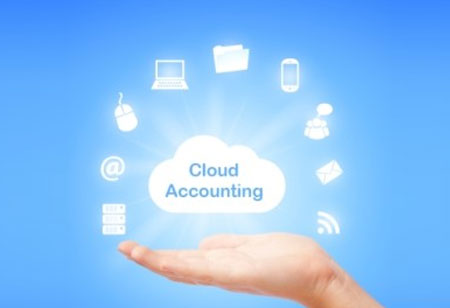THANK YOU FOR SUBSCRIBING
Cloud Accounting tools and its Advantages for Financial Enterprises
Cloud accounting software uses cloud hosting on remote servers by which data is sent to the cloud for processing and then returns to the user. It is an on-premise, self-install accounting software, similar to software-as-a-service models...

By
Apac CIOOutlook | Tuesday, December 04, 2018
Stay ahead of the industry with exclusive feature stories on the top companies, expert insights and the latest news delivered straight to your inbox. Subscribe today.
Cloud accounting software uses cloud hosting on remote servers by which data is sent to the cloud for processing and then returns to the user. It is an on-premise, self-install accounting software, similar to software-as-a-service models, but with an added flexibility, scalability, and collaborative force. On the cloud accounting software, all the application functions are performed off-site.
The user accesses the application remotely via the internet or any other cloud application service provider. Cloud accounting software provides the users, freedom from installing and maintaining the software. It also allows the finance team in an organization to view the real-time status of accounts. The software enables businesses to update their accounts in real-time from remote locations.
Cloud computing has increasingly become an integral part of a business process. Depending on the scale of an organization, cloud accounting software provides solutions for expenses, features for payroll, time tracking, and many other services. Cloud computing software allows companies to cut infrastructural costs for initial hardware or software installations.
Organizations spend many hours of their workforce to combine and recoil their finances; Cloud accounting software automates this process which helps the companies to focus on understanding their financial analytics and also utilize their workforce towards other applications. The automation process of the software also eliminates any duplicate data entry and streamlines the financial operations. The software generates financial statements and employee revenue reports which help to save time during the monthly close.
The characteristics of cloud accounting software are as follows:
Security Features: Financial enterprises need top-notch security features, and data security is their highest priority as they have financial data of their clients. Cloud accounting software provides powerful data encryption method along with anti-malware programs and a prevention technique from unauthorized log-ins. The software allows only authorized personnel to view or update any data.
Software reliability: cloud accounting software has a very minimum downtime which is an essential aspect of a program’s reliability. It also provides back up for the data in case of any discrepancies.
Check Also: Accounts Receivable Solutions Companies





